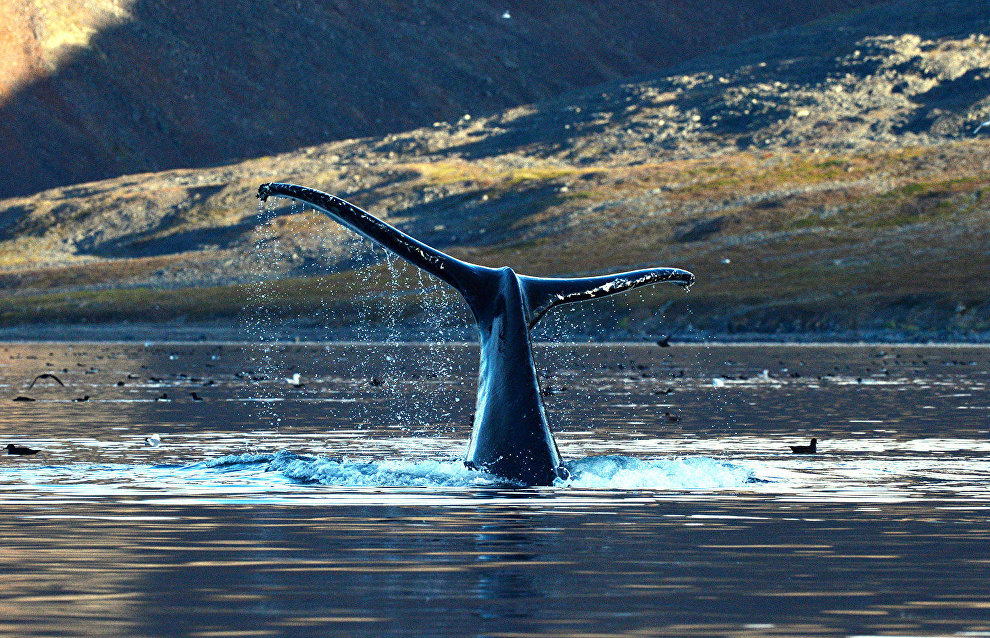Experts to study the effects of ship noise on whales off Chukotka
Research fellows at Moscow State University's Faculty of Biology together with experts from Beringia National Park will study the effects of ship noise on whales. It is necessary to conduct this research because of the development of the Northern Sea Route and active navigation in the Arctic.
Experts will determine the areas where whales gather and monitor the groups of feeding humpback whales. Then they will use a special speaker to make ship noise and see how the whales react to it. The project will be carried out with the support of WWF.
"When a whale is under stress, its breathing rate intensifies, it surfaces and spouts water more often, and tries to get away from the source of the noise. By observing these behavioral reactions, we will see how the whales are affected. In the future, it will help us prevent the negative impact on the whales when developing the Northern Sea Route in case vessel routes cross the summer feeding grounds of the whales," said Ivan Fedutin, a research fellow at the MSU Faculty of Biology and project participant.
According to Olga Filatova (D.Sc. in Biology), the expedition leader, ship noise causes background stress in whales and weakens their immune system. Whales have a hard time hearing each other and finding food.
"Gray whales are less affected by noise because they eat what they can find on the bottom. But humpback whales need to hear the sounds of fish or seagulls," Filatova said.
Another objective of this field season is to establish relations with the marine mammal hunters in the village of Novoye Chaplino. Experts plan to examine the killed whales and measure the stress hormones and pollution levels in their system.
